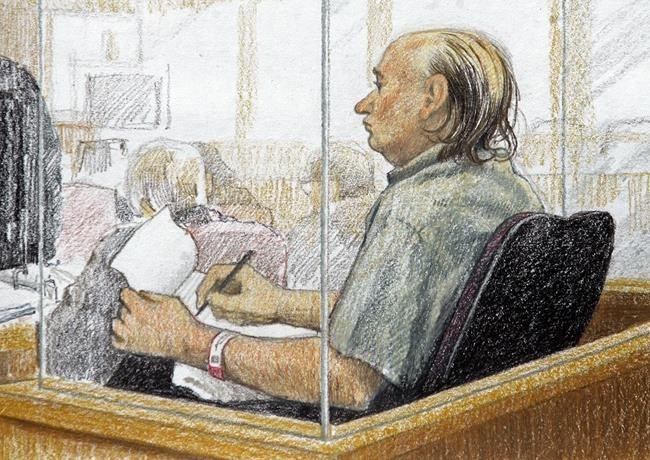The cousin of one of the dozens of murdered women linked to notorious B.C. serial killer Robert Pickton says she will always be afraid that he might be let out of prison, no matter how slim the chance.
Lorelei Williams said it's "disgusting" that Pickton is now eligible to apply for day parole after being charged with murdering 26 women, including her cousin Tanya Holyk.
He was convicted of six counts of second-degree murder in December 2007.
Williams said in an interview Thursday that she's heard from lawyers and others that Pickton will never be granted day parole, which would allow him to be transferred to a transitional house, but that does not comfort her.
"There's that fear there. What if? It's because I don't trust the system. There's always going to be that fear," she said.
Police began searching the Pickton farm in the Vancouver suburb of Port Coquitlam 22 years ago this month in what would be a years-long investigation into the disappearances of dozens of women, many of them from Vancouver’s Downtown Eastside.
Williams and other family members of his victims went back on Wednesday to the former farm site - some of which has been developed into residential housing - where a vigil was held to remember their loved ones and draw attention to Pickton's parole eligibility.
Williams said she's been back to the site of the former pig farm a few times and Wednesday's event was emotional.
"That was the last place that Tanya was and that's where she was murdered. So, it just hit my heart very hard," she said.
Williams said Pickton's chance for parole makes her feel disgusted with Canada's laws and the justice system.
She said no one involved in the justice system informed victims' families that Pickton's day parole eligibility date was approaching, and she only found out after talking with a lawyer she knows.
"They never learned how to work with us. They're just so insensitive," she said of members within the justice system.
"I'm not shocked that they didn't tell us because they like to not tell us things."
The Parole Board of Canada confirmed Thursday that Pickton can ask for day parole, and Leyla Mavaddat, a spokeswoman for the board's Quebec regional office, said such requests can take months before a hearing is scheduled.
She couldn't confirm whether Pickton had made such an application.
Second-degree murder convictions under Canada’s Criminal Code meant Pickton was automatically sentenced to life in prison. The judge gave him the maximum period of parole ineligibility — 25 years.
“In terms of the decisions that I have to make today, determining that period of ineligibility is clearly the focus,” the judge said at the time.
“The women who were murdered, each of them, were members of our community,” he said.
Jason Gratl, who represents several family members of Pickton's victims in a civil court lawsuit, said the serial killer has a "snowball's chance in hell" of ever being released on parole.
He said Pickton is in a supermax prison in Quebec, and is "as far in the universe from parole as a man can be."
At the time of Pickton’s sentencing in December 2007, B.C. Supreme Court Justice James Williams said it was a “rare case that properly warrants the maximum period of parole ineligibility available to the court.”
Pickton was convicted on six counts of second-degree murder for the killings of Sereena Abotsway, Mona Wilson, Andrea Joesbury, Brenda Ann Wolfe, Georgina Papin and Marnie Frey.
“They were women who had troubled lives and who found themselves in positions of extreme vulnerability. These were persons who were in the ugly grasp of substance abuse and addiction, persons who were selling their bodies to strangers in order to survive. Mr. Pickton's conduct was murderous and repeatedly so.”
Gratl said the lawsuit filed more than a decade ago on behalf of several family members of victims remains ongoing against Robert Pickton and his brother David Pickton.
Opposition leader Pierre Poilievre said in a post on X, formerly known as Twitter, that Pickton “should never be released from prison.”
He said the Conservative Party believes “mass murderers should face consecutive sentences so they only come out of jail in a box.”
The Supreme Court of Canada in 2022 ruled that consecutive sentences with “stacked” parole ineligibility periods are unconstitutional.
The court ruled consecutive terms would allow for sentences that were longer than a person's life, a term "so absurd that it would bring the administration of justice into disrepute.”
“A sentence of imprisonment for life without a realistic possibility of parole is intrinsically incompatible with human dignity,” the Supreme Court ruled. "A punishment that can never be carried out is contrary to the fundamental values of Canadian society.”
This report by The Canadian Press was first published Feb. 22, 2024.
Ashley Joannou and Darryl Greer, The Canadian Press

